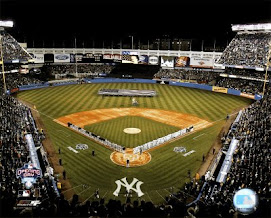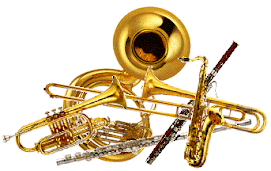It is very early in the season to panic but another storied franchise out of the gate slowly this year is the New York Yankees.
They continue to spend money on free agent players who fail to produce or contribute to team chemistry. Carl Pavano was a big disaster and during the off season the team went out and spent over $250 million dollars to recruit two other free agent pitchers, CC Sabathia and AJ Burnett. For that type of money these players and others such as Alex Rodriguez are expected to win and produce. That is just the reality when they play for the Yankees.
Yankee haters are just having a field day.
Their pitching is terrible and currently the worst in the major leagues; and that is being kind. Their combined ERA is higher than the zip code to their new stadium. Defensively they are challenged with no arms in the outfield and no speed in injury prone Hideki Matsui and Johnny Damon. Teams are running and scoring at will. Utility players like Angel Berroa, Ramiro Pena and Brett Gardner are not going take them to the World Series. Even when ARod returns the Bronx Bombers will not scare anyone because their lineup and power is just not formidable anymore.
Oh how fans pine for the days when the Yankees had chemistry players like Scott Brosius, Bernie Williams, Paul O.Neil and if you want to go back further Chris Chambliss, Graig Nettles, and further yet, Bill Skowron, Joe Pepitone, Bobby Richardson, Tony Kubek. None of these players were all stars; just team players who brought spirit and timely production to some great winning teams. As much as it is painful to admit, they need players much like the Boston Red Sox have of late.
In the opening season series in the Yankees’ brand new stadium against the Cleveland Indians they give up ten runs. They followed that up with a 22 run debacle. Admittedly a lot of things had to go right for the Indians in that game including some favorable winds and some old fashioned good hitting but the bottom line was that the Yankees allowed it to happen. Joe Girardi has this annoying habit of leaving his starters in too long to get shelled partly because he has no one to go to in the bullpen except Nick Swisher.
To his credit, although he was very sensitive about pulling Chen Ming Wang in that game, it was obvious his pitcher was up in the strike zone and having release problems well before exiting the game.
This past weekend the Yankees were swept in a three game series by their hated rivals, the Boston Red Sox at Fenway Park. In the first game the Yankees were leading 4-2 in the top of the 9th inning and they had the bases loaded but fail to add insurance runs. Mariano Rivera, usually reliable and still one of the better closers in the game, gives up a two run tying homer in the bottom of the 9th and then the Sox promptly go on to win in extra innings.
In the second game, AJ Burnett had a 6-0 lead. Girardi again leaves his pitcher in too long and Burnett gives up eight runs! How demoralizing is it for a pitcher to have a comfortable six run lead and give up eight runs. Up until that point Burnett was one of the few bright spots in the rotation. The Yankees go on to lose the game 16-11. In the three games mentioned above, the Yankees have surrendered 48 runs!
Yes, it is early but the Yankees have some serious problems. Fans can only hope it’s not another long season.
Monday, April 27, 2009
Saturday, April 25, 2009
What Happened to the Montreal Canadiens?
Sports News Profiler – What Happened to the Montreal Canadiens?
For a life long dedicated Habs fan, the team’s recent fall from grace was difficult to bear. In this the 100th year of the storied franchise, expectations and optimism were high. Rather than going deep in this year’s playoffs and possibly challenging for the Stanley Cup, the Habs were literally beaten down and swept in four games in the opening round by a more motivated, talented Boston Bruins team.
What happened to the Canadiens in the last year that resulted in such a disappointing season?
Last season they showed a surprising resurgence and finished atop of their conference. Their attributes were the best power play combined with solid defense, team speed and good mix of veterans and youth. With the acquisition of veteran forwards Robert Lang and Alex Tanguay and improving young goaltenders, the anticipation was that the team would continue to improve.
Almost inexplicably however, and with practically the same lineup intact; the power play disappeared, the defense was porous, the goaltending mediocre at best. Mark Streit was sorely missed as was Sheldon Souray the previous year. Secondary scoring was non existent as players like Guilluame Latendresse, Chris Higgins, Andre Kostitsyn and most notably Thomas Plekanacs, struggled and underachieved.
A coaching change late in the season was distractive as well as arguably the rumours of a trade for Vincent LeCavalier prior to the trade deadline.
The bottom line was that this year was not to be. They were beaten by a much superior team in the Boston Bruins who showed too much talent and depth that the Canadiens just could not match. Ironically, the Bruins played like the iconic Canadien teams of old who could beat you any way you wanted to play it; physical, finesse, speed, scoring, goaltending. To their credit the Bruins maintained their cool and discipline throughout and it was the Canadiens who took the chippy penalty calls much like their frustrated opponents of the past.
In the end the Habs were just not good enough. They were depleted by injuries to four of their defensemen, most notably Andre Markov, their leading scorer and power play catalyst as well as both Lang and Tanguay. The effort was there but they took bad angles to the puck, didn’t cover the shot lanes well or finish their checks when it counted. They lost a lot of battles for the puck. Their passing and playmaking were poor and ineffective, often missing the out pass, squandering good scoring chances, or just getting rid of the puck. When they did get scoring opportunities, they didn’t have the snipers who were capable of making the shots. They seemed to be off guard and surprised when they did get the puck in front of the net. Carey Price was capable of a better performance; however, he never seemed to be able to gain the momentum and confidence he needed. Most of the goals he allowed were perfect shots or picture setups.
The great thing about sports is there is a competitiveness and eternal optimism that never fades for fans but the Canadiens’ year in retrospect is a cruel reminder of how difficult it is for any team to win the holy grail.
For a life long dedicated Habs fan, the team’s recent fall from grace was difficult to bear. In this the 100th year of the storied franchise, expectations and optimism were high. Rather than going deep in this year’s playoffs and possibly challenging for the Stanley Cup, the Habs were literally beaten down and swept in four games in the opening round by a more motivated, talented Boston Bruins team.
What happened to the Canadiens in the last year that resulted in such a disappointing season?
Last season they showed a surprising resurgence and finished atop of their conference. Their attributes were the best power play combined with solid defense, team speed and good mix of veterans and youth. With the acquisition of veteran forwards Robert Lang and Alex Tanguay and improving young goaltenders, the anticipation was that the team would continue to improve.
Almost inexplicably however, and with practically the same lineup intact; the power play disappeared, the defense was porous, the goaltending mediocre at best. Mark Streit was sorely missed as was Sheldon Souray the previous year. Secondary scoring was non existent as players like Guilluame Latendresse, Chris Higgins, Andre Kostitsyn and most notably Thomas Plekanacs, struggled and underachieved.
A coaching change late in the season was distractive as well as arguably the rumours of a trade for Vincent LeCavalier prior to the trade deadline.
The bottom line was that this year was not to be. They were beaten by a much superior team in the Boston Bruins who showed too much talent and depth that the Canadiens just could not match. Ironically, the Bruins played like the iconic Canadien teams of old who could beat you any way you wanted to play it; physical, finesse, speed, scoring, goaltending. To their credit the Bruins maintained their cool and discipline throughout and it was the Canadiens who took the chippy penalty calls much like their frustrated opponents of the past.
In the end the Habs were just not good enough. They were depleted by injuries to four of their defensemen, most notably Andre Markov, their leading scorer and power play catalyst as well as both Lang and Tanguay. The effort was there but they took bad angles to the puck, didn’t cover the shot lanes well or finish their checks when it counted. They lost a lot of battles for the puck. Their passing and playmaking were poor and ineffective, often missing the out pass, squandering good scoring chances, or just getting rid of the puck. When they did get scoring opportunities, they didn’t have the snipers who were capable of making the shots. They seemed to be off guard and surprised when they did get the puck in front of the net. Carey Price was capable of a better performance; however, he never seemed to be able to gain the momentum and confidence he needed. Most of the goals he allowed were perfect shots or picture setups.
The great thing about sports is there is a competitiveness and eternal optimism that never fades for fans but the Canadiens’ year in retrospect is a cruel reminder of how difficult it is for any team to win the holy grail.
Subscribe to:
Comments (Atom)



